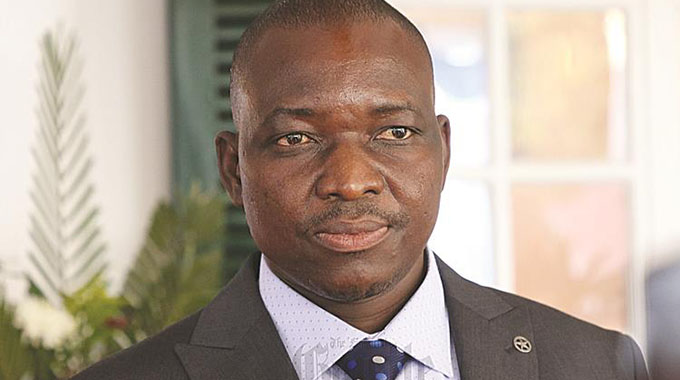REA electrifies 10 000 Mt Darwin households

Fungai Lupande-Mash Central Bureau
Rural areas suffered neglect during the colonial era as they remained underdeveloped and disregarded despite the fact that the majority of citizens live in rural areas.
Today, the Second Republic is speeding up the supply of electricity to all rural areas across the country to uplift the standards of living, improve education and health services.
Gwashure village in Ward 11, Mt Darwin East is the latest beneficiary of the rural electrification programme which has seen the electrification of about 10 168 rural institutions and homes.
The development marks a remarkable shift that has seen students being able to study into the night, expecting mothers delivering their babies in well lit rooms and rural communities accessing modern Information Communication Technologies (ICT) services.
Mrs Angeline Mudziwedombo said the community was lagging behind in education because of lack of electricity.
“We used to see electricity in Rushinga, a close-by urban centre. It was difficult to see the value of education because our children were remaining behind.
“We are convinced that the Second Republic has people at heart. We have remained underdeveloped since independence but with the coming of the new Government, we have seen all critical areas being prioritised,” she said.
“We are appealing for more help to equip our secondary and primary schools with ICT gadgets. I am very excited and I am now going to buy a refrigerator.
“We have radio and television sets and we were using solar power. The power lines are passing through my homestead and we will come together as a community to apply for household electricity.”
Mr Freddy Phiri said the switching on of electricity at Gwashure Primary and Secondary School as well as the business centre has opened more business opportunities.
“We have shops that sell drinks and other goods that need refrigerators. Due to lack of electricity we were losing business. We are now looking forward to expanding our businesses into the hotels and hospitality industry,” he said.
“Senwa dam is under construction and we expect the dam to attract tourists. We are now moving into construction of lodges. The dam will also bring massive irrigation for this community and surrounding areas.”
“Electricity is the basis of everything and we can now connect on social media and market our business. We are appealing for Wi-Fi in the school to help our children in their online education.”
Gwashure Primary School head Mr Lucas Kapurura said the school has poor pass rate due to lack of electricity.
The school was facing challenges in registering Grade 7 students for the final examinations.
They relied on laptops and mobile phones provided by teachers in teaching e-learning.
“This is the dawn of a new era for this school, which opened its door in 1982.
Lady teachers would spend only a month here and transfer because they would charge their mobile phone in homesteads,” he said.
“This seriously affected our pass rate which dropped to as low as three percent. The highest pass rate was between 15 to 20 percent.”
The construction of the 4,947 kilometre 11kV line and installation of two substations that connect Gwasure Primary and Secondary School as well as business centre was done at the tune of US$65 889,70.
In the province a total of 1 225 projects were implemented lighting up 393 primary schools, 182 secondary schools, 113 rural health centres and 28 Chiefs homesteads.
The guest of honour, Energy and Power Development Minister Zhemu Soda said the Government recognises the importance of provision of clean and reliable energy in rural areas.
The thrust is to close the rural-urban divide which is responsible for the rural-urban migration.
“Rural industrialisation can be afforded through provision of electricity while modern ICT services can be accessed. Agriculture activities will be enhanced among other benefits of access to electricity,” he said.
“To this end, after Independence in 1980 the Government started the Rural Electrification Programme to bridge the gap between urban and rural areas.
“Unfortunately due to inadequate funding the pace of the programme has been slow. Government is now looking into more innovative ways of increasing funding for rural electrification especially through crowding in of the private sector.”
Minister Zhemu said the Government has availed a special package, Government Implementation Agreement to capacitate Independent Power Producers to produce more power.
The package will enable construction of licensed projects that are stalled due to perceived financial risk.
He said development of energy infrastructure is capital intensive and called on the private sector to actively participate in this area.
“Currently the country is realising an average of 1 200MW from local generation against an average peak demand of 1 600MW. This is as a result of the successful synchronisation of Hwange Unit 7 which is contributing 300MW and the increase in water allocation at Kariba Power Station,” he said.
“Unit 8 at Hwange expansion project is expected to be tied to the grid sometime this month to bring the total to 600MW. This will go a long way in reducing the current deficit taking into account the growing demand for power.
“Projections are that by the end of 2023 the nation’s demand for power will increase by 400MW. The Batoka Gorge hydropower generation project being implemented bilaterally with Zambia will see both countries getting 1 200MW apiece.
“Feasibility studies for the project were done and procurement of a contractor is underway. The groundbreaking ceremony for the Batoka projects will be done soon.
Plans are in place to rehabilitate the Hwange Thermal power station to increase its power generation to 920MW.”









Comments